Interpreting Test Results when The Cable is neither Good nor Bad
Navigating the Ambiguity of PASS* and FAIL*

In the world of structured cabling, it’s common to hear the terms verification, qualification, certification and a new test type known as qualification+. Yet, despite this regularity, many don’t fully understand the differences between each cable test category. Whether you’re a cable contractor or a network operator that needs cabling installed, understanding the differences — and when to use them — is a must-have skill.
For new cabling projects, all pulls are generally tested post-install. These tests are designed to confirm the cable runs were properly terminated and function as expected. That said, the test types used to validate a proper install will be different depending on the level of assuredness the customer requires. In rare cases, they may only want simple tests performed to ensure the most basic level of operability. In most others, more advanced tests will be run to assure functionality in certain usage scenarios – and to adhere to the cable manufacturer’s warranty install specifications. The more tests that are performed, the more assured one can be that the cabling was done properly without defects and that it can operate at the speeds and power levels required for use. However, as the number of validation tests run increases, so does the cost. Thus, it’s up to the customer to determine what type of test is necessary for each job. To help better understand what types of cable tests can be run within a certain category, let’s briefly look at each one.
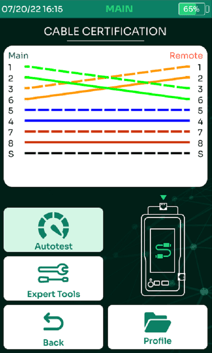
When a cabling project is verified by an installer or network support operator, this is the lowest level of cable assurance testing. The tests performed validate that the cables are properly connected from one end to the other. This includes checking to be sure that all the wires in a copper cable are properly punched down/crimped to the proper termination points and the overall length of the cable run is within limits. Common problems discovered while performing a cable verification test include mis-terminated wires, cable breaks/shorts and cable lengths that exceed specification maximums.
In most cases, simple verification tests aren’t enough to consider the cabling production-ready, because verification tests tell you nothing about the bandwidth-capability of the cabling. Thus, most cabling jobs require the cabling plant to meet qualification or certification test standards.
The next cable validation category is called qualification. This level of testing performs all the basics performed when verifying cables – and expands on those with additional tests. The purpose for the additional series of tests is to confirm the cables will operate properly when running at certain speeds – or when transporting time sensitive data such as VoIP and streaming video. These tests may include validation of throughput capacity up to multigigabit speeds, streaming data performance, and power over Ethernet (PoE) detection. Potential cabling issues that can be discovered during qualification testing include duplex mismatches, cross talk, noise and basic PoE issues. Most qualification testers will be able to test Ethernet links at 10Mbps, 100Mbps and 1Gbps. A qualification and certification tester such as the TestPro CV100 can also validate links at 2.5Gbps, 5Gbps and 10Gbps with the optional AD-NETCABLE adapter.
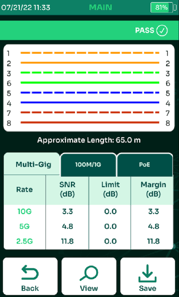
While cable qualification tests can be used as a lower-cost method for non-critical cable installs, they will not meet the test standards required to apply a cabling manufacturer’s warranty to the job. That’s why most cabling projects include full cable certification testing as part of the plant install process. Instead, qualification-level tests are more applicable when troubleshooting existing cabling.
At the top of the cable test validation category list from a cable installer perspective are tests that guarantee all installed cabling and terminations meet the cabling manufacturer’s strict specifications. Doing so will grant the customer a manufacturer’s warranty for the newly completed plant. Certification test tools not only give you all the testing and troubleshooting features found in cable verification and qualification tools, they add sophisticated RF measurement tests that ensure cabling meets industry and manufacturer standards for multiple types of deployments. All certification test results can be saved and shared with the manufacturer and customer for their records.
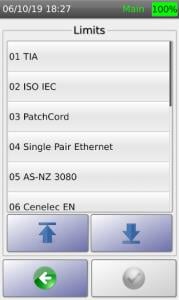
Keep in mind, however, that not all certification test tools are the same. While all certifiers perform the same core standards-mandated tests, others like the TestPro CV100 include optional measurements for key cabling parameters like DC Resistance Unbalance, TCL, ELTCL and more. Other important differentiators include speed of testing and maximum supported frequency. The TestPro CV100, for example, completes a full Cat 6A certification including all optional parameters in just 6 seconds and exceeds 2G accuracy all the way to 3GHz. Additionally, the CV100 combined with the optional TestPro Fiber Certification kit can certify multi-mode and single-mode installations to Tier-1 industry standards as well as test for voltage in hybrid powered fiber.
From a PoE testing standpoint, the TestPro CV100 K30, which includes the AD-NET-CABLE adapter provides the most comprehensive tests in the industry. The tool provides simple and fast PoE verification as well as sophisticated load testing of power for all of today’s PoE standards. This includes the latest 802.3bt standard that provides power to end devices up to 90W. As the Internet of Things (IoT) movement continues to grow, expect PoE testing to become an increasingly important part of the cable validation process.
When testing PoE, each TestPro that comes in the standard kit can be independently deployed giving you double the test equipment for certain tasks.
A relatively new cable test category is called qualification+. Testers that are qualification+ capable are a bit different from other test tools. These should be thought of as hybrid tools that bridge the gap between network connectivity and standards-based testing tools. This is because the added features of a qualification+ tester are primarily geared toward IT shops that require a tool for in-depth troubleshooting — or to verify that next-generation PoE and multi-gigabit projects will operate correctly on existing cable runs. A qualification+ test tool such as AEM’s new Network Service Assistant (NSA) tester provides Certi-Lite ANSI/TIA 1152-A compliant single-ended test results that are close to what full cable certification testers can provide. The difference, however, is that NSA can be purchased at a fraction of the cost of a full-fledged cable certifier. Additionally, as businesses evolve and begin adding various smart building/IoT capabilities onto their networks, a qualification+ tester helps ensure these high bandwidth, high-PoE consumption devices will operate on existing runs. These types of tests will help assure the success of new IoT or smart building projects.
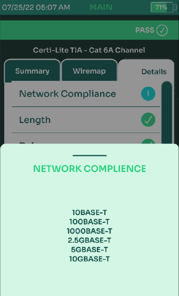
Single-ended Standards Based Test with Assurance of Llink Capability
For professional cable installers, a certification test tool is by far the most obvious choice when looking at the various cable test categories. Certification tests are required to satisfy the manufacturer’s cable warranty from an install perspective. But for those that only install a handful of cables per year, a qualification test tool may be a more economical option. Finally, when it comes to IT shops that are seeking a tool for troubleshooting and/or network performance planning purposes, verification testers perform very basic troubleshooting tests while qualification and qualification+ testers offer additional troubleshooting, PoE/multigigabit performance validation and detailed standards compliant measurements. Likely the best way to determine the right tool for your needs is to contact AEM’s customer support team. We can help guide you through the process of choosing a test tool that meets your cable test needs both today and into the future.
Ready to learn more about how AEM's award-winning test solutions can help you achieve your cable testing needs? Request a demo with our team.
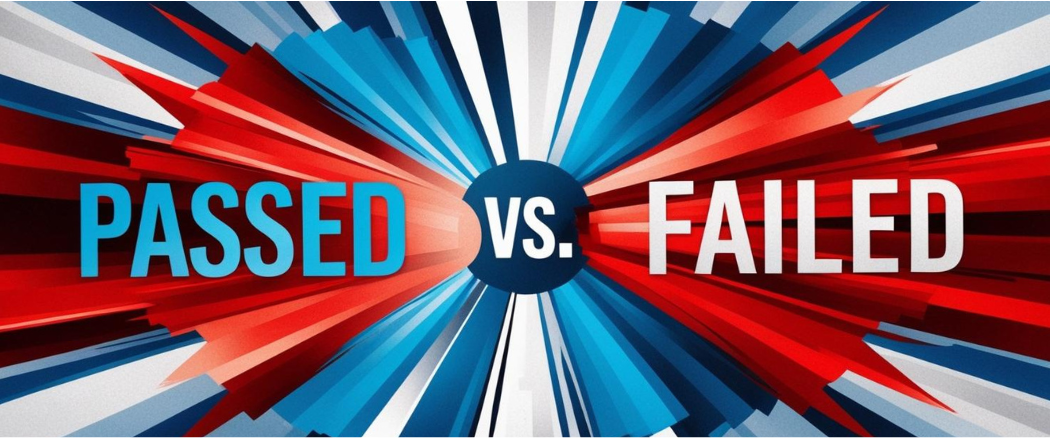
Navigating the Ambiguity of PASS* and FAIL*

With increasing requirements to connect bandwidth intensive smart devices in networks, there is a...

Network and cabling professionals are likely to come across different Ethernet cabling standards...
Leave a comment